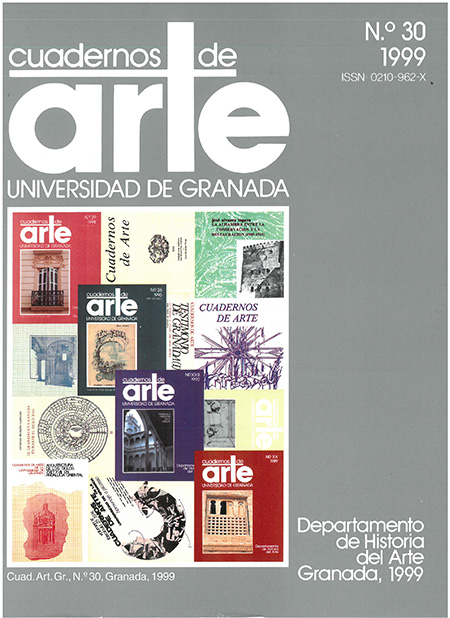Positivism and aesthetics in the second half of the 19th century in Spain: José Echegaray's theory of art
Keywords:
Aesthetics, Art theory, Art criticism, Echegaray, JoséAbstract
The theoretical artistic ídeas of the dramatist José Echegaray are discussed. These may be seen as positivist, although his thought starts from a rationalism with a metaphysical basis (close to Kraus- institutionism) and finishes by being strongly critical of this view. The study of theoretical aesthetics leads to the analysis of a real theory of art and concludes with a discussion of aspects of the criticism of art which are influenced by the vitalism of the end of the century.Downloads
Download data is not yet available.
Downloads
Published
1999-11-01
How to Cite
Falero, F. J. (1999). Positivism and aesthetics in the second half of the 19th century in Spain: José Echegaray’s theory of art. Cuadernos De Arte De La Universidad De Granada, 30, 287–293. Retrieved from https://revistaseug.ugr.es/index.php/caug/article/view/9099
Issue
Section
Estudios
License
Los autores que publican en esta revista están de acuerdo con los siguientes términos:- Los autores conservan los derechos de autor y garantizan a la revista el derecho de ser la primera publicación del trabajo al igual que ser licenciado bajo una licencia Creative Commons que permite a otros compartir el trabajo con un reconocimiento de la autoría del trabajo y la cita de la fuente original, con un uso no comercial y siempre que no se hagan obras derivadas.
- Los autores pueden establecer por separado acuerdos adicionales para la distribución no exclusiva de la versión de la obra publicada en la revista (por ejemplo, situarlo en un repositorio institucional o publicarlo en un libro), con un reconocimiento de su publicación inicial en esta revista.
- Se permite y se anima a los autores a difundir sus trabajos electrónicamente (por ejemplo, en repositorios institucionales o en su propio sitio web) antes y durante el proceso de envío, ya que puede dar lugar a intercambios productivos, así como a una citación más temprana y mayor de los trabajos publicados (Véase The Effect of Open Access) (en inglés).


 ISSN-e: 2445-4567
ISSN-e: 2445-4567








